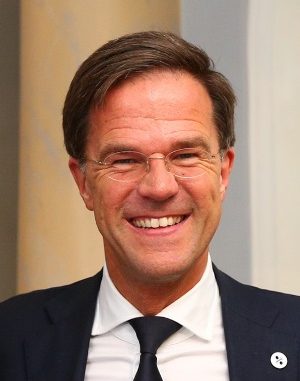
The government of Mark Rutte has collapsed in shame and scandal as anger has risen against its persecution of the poor and immigrants. Economic affairs and climate minister, Eric Wiebes, resigned, as has the leader of the PvdA (Dutch Labor Party), Lodewijk Asscher, who was a minister in Rutte’s previous cabinet. The collapse came about after a tense meeting where all three junior parties in the VVD (People’s Party – Dutch conservatives)-led coalition pulled their support.
Pressure had been building against Rutte since December. Starting in 2012, Rutte’s government imposed rules that treated twenty thousand families receiving childcare benefits as fraudsters and began mass investigations. Among the reasons triggering the assumption of fraud were making minor errors in filling out the benefit forms, or holding dual nationality. Many applicants had their benefits cut off for no clear reason. Thousands not only lost their benefits but were forced to repay up to tens of thousands of euro of benefits received.
The class character of this policy is absolutely clear when it is remembered that last November an international report branded the Netherlands, in the words of the New York Times, “a leading global tax haven for large corporations”.
A parliamentary investigation into the so-called “toeslagenaffaire” was released in December. Titled simply, “Unprecedented Injustice,” it named Rutte, Asscher, Wiebes and former finance minister, Frans Weekers, as primary perpetrators of the persecution of these families. Weekers resigned from Rutte’s cabinet in 2014, having lost a parliamentary motion of confidence over failing to deliver rental and care allowances on time to hundreds of thousands of Dutch residents.
Dual nationality being a criterion for fraud investigation has triggered widespread accusations of racism and xenophobia against Rutte’s government. Oddly, prosecutors investigating the case claim to have found no evidence of racial discrimination–even though they admit that more than half the 20,000 families targeted were dual-citizenship families!
Prosecutors instead say the responsibility for punishing Rutte and his right-wing government lies with the ballot box in the forthcoming March 17 general election. Certainly, it deserves punishment. Rutte’s and his predecessor JP Balkenende’s government have pushed over a decade of austerity and privatization on the Netherlands, often hand-in-hand with the PvdA. The Rutte government has also earned a reputation as a leader of the “Frugal Four,” using the EU to deprive poorer countries in Europe of Coronavirus funding. Rutte has also botched the coronavirus response at home. Measures to control the outbreak were brought in far too late and vaccinations beginning only on 6 January, weeks after many other countries. So this formal resignation maybe just a manoeuvre to try to bury the scandal before the vote.
Yet Rutte is likely to be returned to power by voters simply because the dozens of Dutch parliamentary parties offer no useful alternative. Far-right racists, the PVV (Freedom Party), are once again rising in the polls on the basis of cynical opportunism. Their own programme largely focuses on anti-Islam paranoia and calls for martial law, but economically they propose austerity and deregulation, which is in some ways goes further than the VVD.
Unite workers and immigrants with a socialist programme!
On the left, meanwhile, the Green Left (successors to the Dutch Communist Party), continued to water its programme down and focus on “soft” issues rather than economics, and recently its support seems to have dropped. The Dutch Socialist Party (which has Maoist roots) has lost much ground since having 50,000 members in 2010 and winning 16.6% of the vote in 2008. Now it has 32,000 members and is polling less than 7% in the opinion polls and the leadership is looking to join a capitalist government. There is some opposition to this. At last December’s SP party congress about 20% opposed the election programme and up to 40% opposed the party leadership’s attack on its own youth organisation which has opposed the leadership’s course. The party has spent the past several months turning against its own socialist members rather than fighting for Dutch workers.
Until the toeslagenaffaire crisis broke the Labour Party had been recovering a bit from its dismal 5.7% in the 2017 general election, but that is now in question.
Dutch workers, immigrants and working-class families need a mass movement built on a bold socialist programme. Demands could begin with a call for all those victimized in the toeslagenaffaire to receive full repayment and back benefits. A reversal of privatization and austerity in all sectors must follow. All this cannot be achieved without a revitalization of the Netherlands’ trade union movement which needs to build for national action to demand the restoration of benefits.

